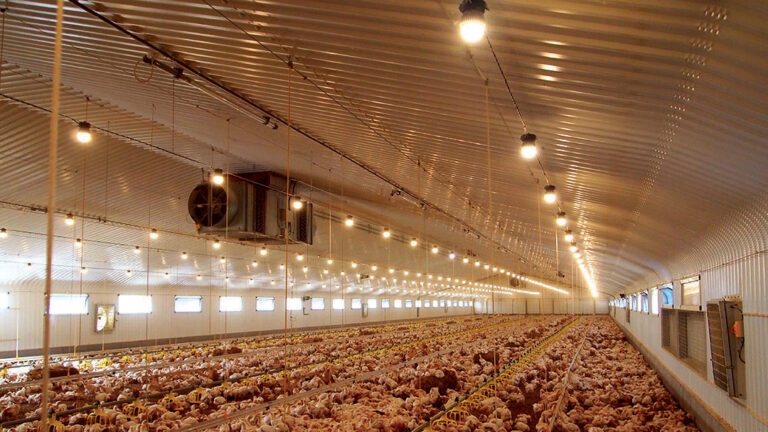Farming organisations have joined forces to urge the Environment Agency to rethink proposed levels of environmental permit charge increases for the intensive pig and poultry sectors.
The NFU, National Pig Association (NPA), British Poultry Council (BPC) and British Egg Industry Council (BEIC) are warning that a doubling of application fees and a significant uplift in variation fees would cause huge concern for pig and poultry farmers, at a time when businesses are already making significant investments in order to improve competitiveness.
The Environment Agency consultation on its Strategic Review of Charges states that; permit variation fees will increase from £380 to between approximately £2,400 and £7,000 depending upon the degree of variation. In addition new application fees could rise from £3,750 to around £8,000.
In a letter to the Chief Executive of the Environment Agency, Sir James Bevan, the four farming organisations say the significant unbudgeted costs will discourage farm businesses from adopting new technologies, curbing plans for modernisation and investing in improved environmental practices.
NFU poultry board chairman Duncan Priestner said: “These changes raise very serious concerns for our industry and we would urge the Environment Agency to reconsider.
“Farm businesses are incredibly innovative and are often early adopters of new technology – this sharp increase in costs levelled on businesses by the Environment Agency could seriously curtail these advancements.
“Many businesses are currently suffering from a lack of certainty regarding the future environment we will work in after Brexit and many are already making cost changes to improve their efficiency and competitiveness on farm.
“These proposed changes could see many pig and poultry businesses take a step back from innovating to ensure they can deal with inflated administrative costs.
‘’In return for additional cost we are receiving nothing extra in return. This money would be far better spent invested in the business for the benefit of the environment. The proposed fee increases are inequitable and unjustified – a view that we will be conveying strongly to the Environment Agency.”
NPA Chief Executive Zoe Davies said: “We are extremely concerned at the proposed charge increases, which we believe are unjustified, unfair and will cause unnecessary damage to pig farmers who have done nothing to deserve this.
“In fact, the pig sector has invested heavily over the years to address the concerns covered by environmental permits, making it easier for the Environment Agency to do its job. That this is how we are repaid is utterly unacceptable and we are asking in the strongest terms for the Environment Agency to think again.
“We are not satisfied with the reasons provided to justify the charges and believe that there is a lot more the Environment Agency could do internally to improve its processes and reduce its own costs, rather than passing its inefficiencies onto the pig sector.
“If these charge increases go ahead, it will not only hamper pig farmers, who have come under huge financial pressure over the years, to invest in meeting challenges like environmental pollution, but will erode confidence in the Environment Agency, itself.”
British Poultry Council, Chief Executive, Richard Griffiths said: “Respecting our environment is a fundamental part of British poultry meat production. Our farmers have a strong track record of acting responsibly and working alongside regulators to prevent pollution incidents, responding to them, tackling the root cause of the problem and promoting good practice.
“We are calling on the Environment Agency to acknowledge our contribution to food production that respects the environment and reconsider the proposed changes to the environmental permit charge.”
Mark Williams, Chief Executive of the BEIC, added: “The proposals will hinder future innovation in food production and environmental technologies in the egg industry. We recognise and take seriously our duty to protect the environment as our track record demonstrates. We achieve this whilst producing a highly nutritious and affordable food for UK consumers. These extraordinary increases in charges will compromise this.”


